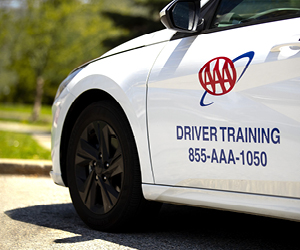The parent-teacher conference is a rare opportunity to sit down for one-on-one time with your child’s teacher. They are a chance for a two-way discussion of your child’s progress that goes far beyond test scores and report cards. They also offer an opportunity to establish a partnership with the teacher so that you can work together to support your child. Whether your student is struggling, excelling or somewhere in between, making the most of this time can make a real difference in your child’s school year. The National Education Association, Harvard Family Research Project and the Nemours Foundation offer the following suggestions.
1. Write down your questions.
Take some time to think about what you would like to ask your child’s teacher, and write your questions down so that you can cover all the important points during the limited time available. Prioritize questions so the most important ones are addressed.
2. Check in with your child.
Have a conversation before the parent-teacher conference and ask your child whether she or he has any concerns or questions for you to discuss with the teacher. This gives your child a voice, and shows your child that you take the conference seriously.
3. Know what to expect.
Use the school’s online portal if possible, or send a note to the teacher, to find out how your child is doing in class. This will help you prepare for situations that might need to be addressed, and avoid surprises that could make the meeting awkward.
4. Stick to the schedule.
Your child’s teacher will be spending time with many other parents during parent-teacher conference days. As a courtesy to the teacher, and to the other parents on the schedule, arrive promptly for your appointment and don’t stay longer than your allotted conference time.
5. Start on a positive note.
Thank the teacher for his or her work with your child, and share some positive feedback about your child’s experiences in class. This sets the tone for cooperation and sharing during the rest of the conference.
6. Share information about your child.
Is there something happening at home that might impact your child’s behavior in class? Whether it’s distress over a death or divorce in the family or excitement over a new job or new baby, let the teacher know.
7. Ask about your child’s strengths, weaknesses and progress.
Aim for a complete picture of how your child is doing. Don’t just focus on problem areas, but on bright spots as well. Knowing what your child is doing well makes it easier to tackle challenges.
8. Ask about social skills.
School is more than academics. Ask how your child gets along with her or his peers, about your child’s participation in activities and about his or her friends. These things make a big difference in your child’s attitude toward school.
9. Ask what you can do at home.
Most teachers are delighted to give parents tools for helping their children catch up, or for challenging those who are pulling ahead. Whether it’s tips for organizing homework, helpful websites or suggestions for educational outings, take advantage of this advice.
10. Plan for ongoing communication.
Ask your child’s teacher how she or he would like you to follow up on what you’ve discussed. It might mean scheduling a future meeting or phone call, sending a note to class or emailing. Choose the communication channel most convenient for the teacher, and follow through.
By Christina Elston













